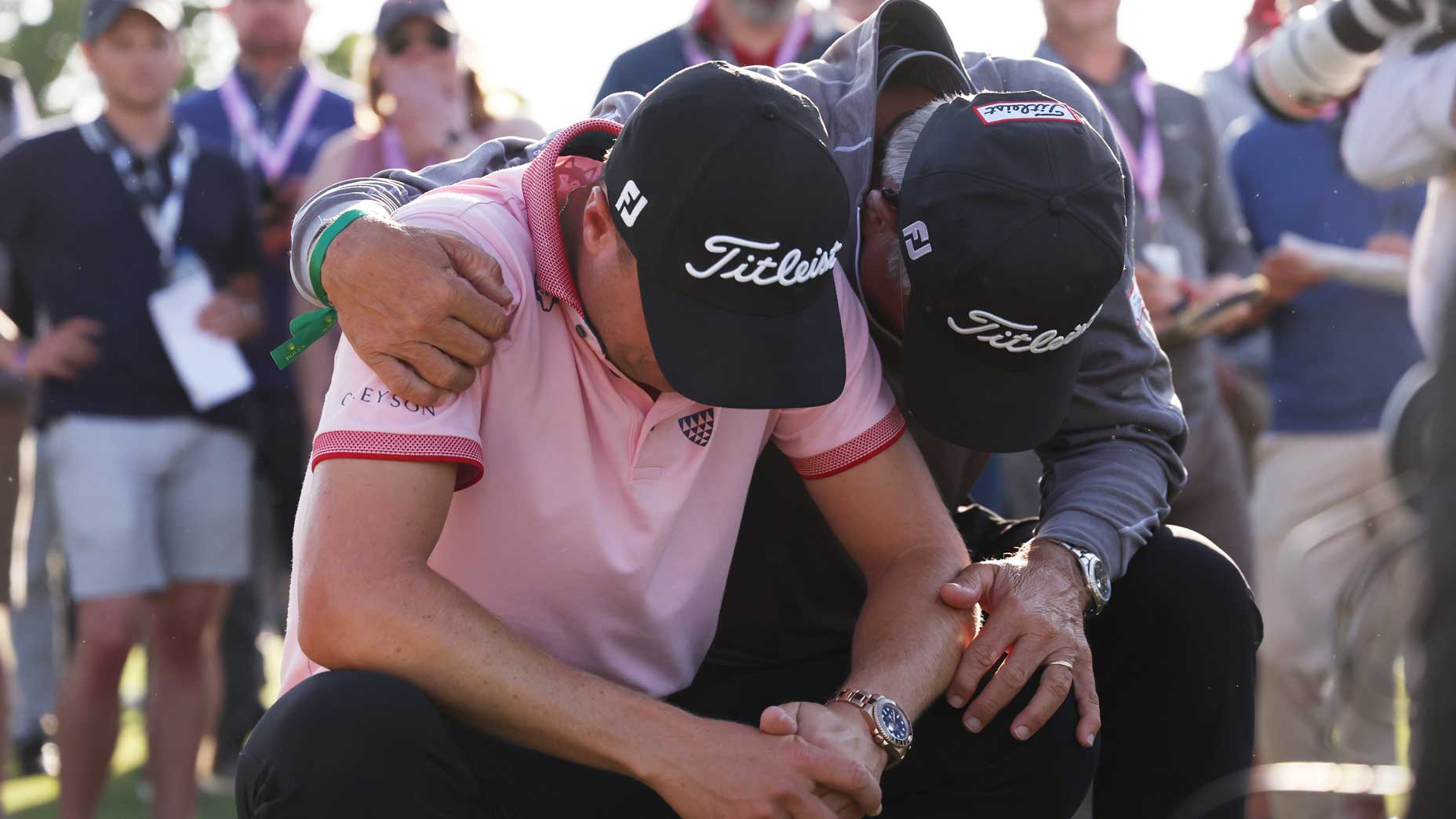It’s fitting that the week we can officially start talking about Netflix’s PGA Tour documentary, titled “Full Swing,” is this week, when the Tour’s traveling circus arrives at the Waste Management Phoenix Open.
No golf event has ever appealed to such a broad audience. They call it The People’s Open for a reason: It’s for everyone, and you don’t need to fact-check the attendance records to realize that golf fans and non-golf fans alike are sprinkled throughout TPC Scottsdale all week.
“Full Swing” will have a broad audience, too — perhaps the broadest audience ever for a piece of golf content. And so the show has to do what documentaries have to do when appealing to a wide audience: explain. “Full Swing” has to explain what match play is, and what a birdie is and what the cutline means. If that bothers viewers, they should feel privileged. They know golf really well.
When the explaining is done, the show offers things that Tour fanatics will enjoy, too. There aren’t an endless number of original nuggets, but we get to see 2022 from a different angle, i.e., from beside Matthew Fitzpatrick’s father Russell — his eyes welled up — as his son wins the U.S. Open.
If the show is heavy on any one element, it’s just that: emotion.
Emotion connects us as humans when everything else is dissimilar. We will never understand what it’s like to win the PGA Championship, but a lot of us know what it’s like to succeed with our families. You understand Justin Thomas’ PGA Championship win better when “Full Swing” shows you it in a different way. Look no further than the side profile of Thomas crouching to the ground behind the 18th green under the shadow of his father crouching into a hug over his back. I knew it was coming and it still gave me goosebumps. We’re not used to seeing golf’s greatest moments cued up to a rousing Hozier song, but it feels good to re-watch them that way.
It’s through those tugged heartstrings that “Full Swing” brings viewers along for its eight-episode ride, which goes live on Netflix Feb. 15. Each episode is devoted to specific players (often multiple), all approaching different targets from different positions, and all within proximity of one another. That’s what the Tour is, a bunch of storylines hovering around each other and crashing into each other at different times of the year. Which means “Full Swing” producers had to be in a lot of places all at once.
When Mito Pereira crumbled on the final hole of the PGA Championship, CBS was on top of it. Jim Nantz and Nick Faldo laid out all the stakes as Pereira made that tragic double bogey. But when the playoff between Thomas and Will Zalatoris kicks off in the opposite direction, so does CBS. “Full Swing” stayed with Pereira the entire way as he moved on to whatever the hell one moves on to after the worst finish of their life.
There’s even some sympathy to be had for Big Bad Brooks Koepka, who saunters throughout much of the second episode. You feel his frustration as he existentially ponders his career prospects. Brooks might not be your guy, but sand slipping through the hourglass is an idea we all understand. The same goes for LIV golfers Ian Poulter and Dustin Johnson, who finally spoke straight to camera — without fluffy talking points — about how their LIV Golf considerations came down to one thing: money and what the windfall means for the people around them.
At times “Full Swing” is ushered along by the PGA Tour’s main 2022 storylines like LIV. (People and voices from GOLF.com are used in the production.) But a chronological sequence through the season this is not. It begins in May, jumps back to February, pushes forward to June, back to March, and finishes at the Tour Championship. April and July play a factor, too, don’t worry.
Instead of telling viewers how the circus traveled from Point A to Point B to Point TPC, “Full Swing” focuses on the people circling within. And if we analyze the show scene-by-scene, it’s easy to realize that relatable emotion doesn’t really sit at tournament sites anyway. Tour players are urged to hold their composure at all times. They can let go once they’ve won, but we often only receive short bursts of those joyful moments — like Tony Finau tearing up after his consecutive victories last summer. But that’s just a taste of the sensitivities Finau dealt with — and that Netflix caught — in 2022. And Finau is just half of an episode.
Don’t get me started on Joel Dahmen, because I’ll start crying, too.
